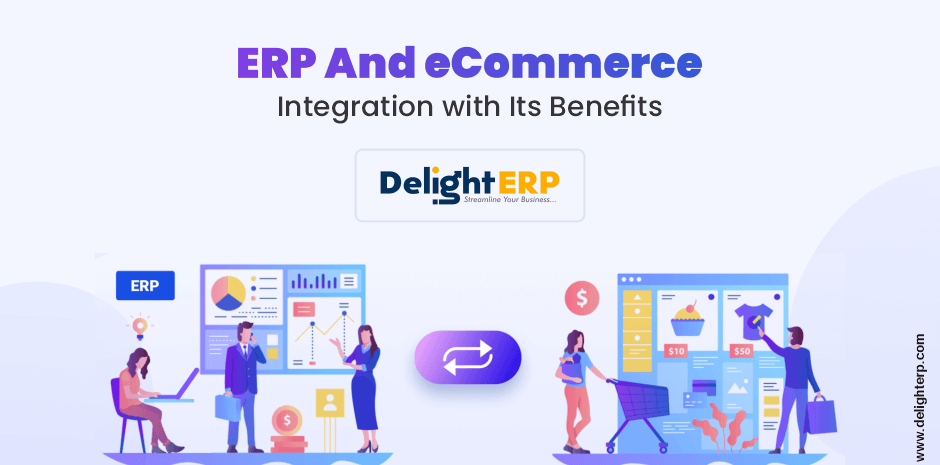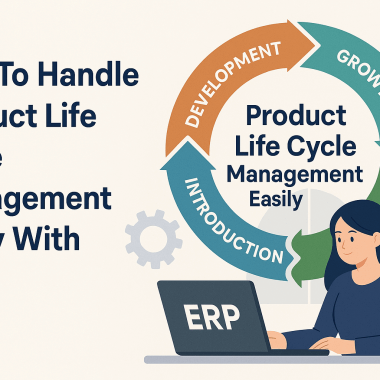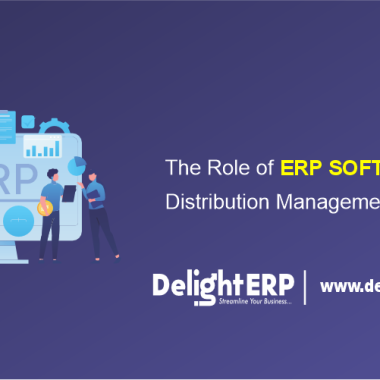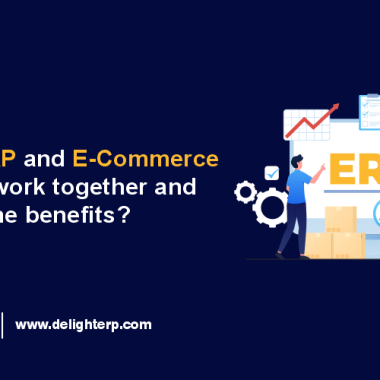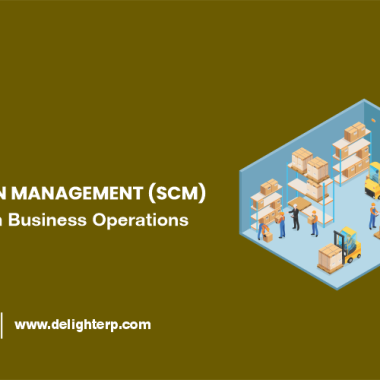The era of developing an e-commerce business has changed the market scenario drastically. The working pattern in the companies has been changed since companies have opted for making a sale of their products online, with an advantage of the fast pace in the business growth, resulting in the rapid expansion of organizations. So today we will show you the benefits of ERP And eCommerce Integration which is the two most useful technology in the era.
In this competitive environment, business owners are looking for alternatives for expanding their market and business. Opting for an e-commerce business approach might be fruitful virtually, due to its cost-effective business model, but the owners should be aware of the fact that for survival in this new competition, there is a still long journey to travel. They can reach their destination by maintaining the streamline processes, looking out for efficient supplies of the product, reduction in costs at initial levels, along with discovering the latest market strategies to keep the clients engaged with their businesses.
In the last decade, the majority of the companies have moved some part of the process online and ERP, being an integral part of the business organization, provides fast and consistent services to the businesses running on the internet.
ERP And eCommerce Integration
Now let’s begin the actual talk about the ERP And eCommerce Integration. If integrated successfully, the ERP platform can provide faster transmission of data between the internet portal and the company. This data can be categorized as details of the order received for a product, details of the customer who have placed the order, available quantity of stock, purchase and selling costs, etc. Transferring these data should be rapid, instant, and also a two-sided discussion type.
One of the advantages of this ERP And eCommerce Integration system is it includes the order management system, in which the order details, customer details, etc. are entered as soon as the customer places an order. Hence, unlike the conventional system of the data being entered by the business person, online mode stores the data automatically as soon as the customer places an order, without the involvement of the business person.
If these features cannot be included in the ERP system of the organization, chances of poor service regarding product delivery and the company’s performance degradation are sure to arise. Those companies, who haven’t upgraded their offline businesses to online mode, are already facing the downfall of their businesses due to the rapid growth of the online market.
Considering the two-sided transactions, not only the company gets benefited from the automation in the data storing process in the ERP, but it would also help send the relevant information to the customers like estimated dispatch, delivery, etc.
Due to these advancements, the businesses have become flexible and have also added a variety of value-added services like campaigning their products and managing the supply chain, with their products.
Also, see How Cloud ERP Software Solves Product Manufacturing Problems
Benefits Of ERP And eCommerce Integration
Let us list down the major benefits ERP And eCommerce Integration for an organization willing to migrate to online selling of its products.
- Takes care of the product details like stock available, total sales of the month or year, inventory management, shipping details, customer details, etc.
- Reduces the time and efforts wasted for manual management of inventories.
- Duplicate data entry was possible with the manual entry of data in the software. Hence, the integrated system also takes care of the duplication of the data.
- A continuous as well as uninterruptible procedure from displaying products on a website to delivery of the same to its customer.
- Sends a notification to the customers regarding the dispatch, shipping details, and estimated delivery date and time for the product.
- The productivity of the employees working in the organization is also increased as they get a chance to update themselves whilst most of the tasks are managed online.
- As the e-commerce system has been integrated with ERP software, generating reports based on the periodic analysis has become an easier task as compared to the manual report preparation which might contain redundant data.
- Various sales channels can be added to maximize the sales the profit.
- Tax-related transactions and information are easily managed.
- A single dashboard for the business person and the customer can be maintained, and the customer can fetch the delivery information from the same.
ERP And eCommerce Integration Necessity
Now, let’s discuss the reasons why businesses prefer to migrate to online businesses. Apart from some businesses that only migrate a part of it to the online platform, several businesses have decided to migrate the whole process of the business environment to the e-commerce one.
Hence, this results in displaying the inventory as well as the pricing details to the customers.
As the business expands, with time, there might be a rise in the need for more employees to handle the processes related to transactions and data storage. In the case of the online mode of any business, managing human resources can also be done efficiently.
Now let us discuss the requirements of the features and functionalities if an ERP system if you wish to integrate the ERP system with the e-commerce platforms.
For integrating your ERP with your e-commerce business, your ERP must include the following functionalities:
- Integrated Customer Relationship Management (CRM) module in the ERP.
- Financial management of the organization should be efficiently done by the ERP software.
- Managing the inventory should be included in the ERP.
- Information related to dispatch and shipping should be updated in real-time.
Now you might winder, which of the e-commerce platforms can be integrated into the ERP software of the organization. Let’s look at the list of these platforms integrated with the ERP software:
- Shopify
- Amazon
- eBay
- Magento
- BigCommerce
- Etsy
- Yo!Cart
- WooCommerce
These platforms have proved to be the efficient ones in performance aspects whilst integrating with ERP.
Not only today but in the upcoming years too, the trend of e-commerce will be in progress so larger organizations would have to come up with a solution of integrating their latest e-commerce business with their existing ERP systems.
See this ERP Myths That Can Stall Your ERP Software Initiative
Conclusion
So, concluding our article over here, we saw how the ERP And eCommerce Integration can be beneficial to the organizations for their growth and expansion. I hope this information helps!

